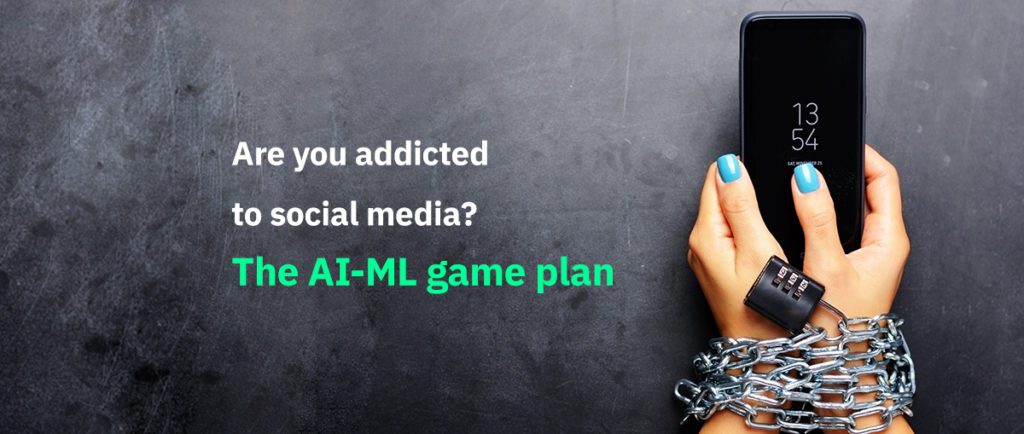
Have you ever looked at yourself and thought why you spend half of your day scrolling through your social media pages, despite having work till your neck; work that actually matters to you?
Also Read: Career Opportunities After An MBA In Digital Business
Have you ever found yourself in state of panic looking for your mobile to just check how many likes you’ve received for the picture you uploaded on Facebook or Instagram in the dress you just bought? But where does this intense obsessiveness over social media pops up time to time?
Also Read: Secret Weapons Of Digital Marketing
The underlying cause of all this is your dopamine driven dezire of social validation and psychologists hired by popular social media platforms like Facebook , Instagram and Snapchat are taking advantage of that dezire by inventing strategies to optimize the algorithms of those platforms to increase your dopamine count. By using algorithms to leverage your dopamine-driven reward circuitry, psychologists stack your brains against yourself.
Dopamine is a chemical produced by our brains that plays a starring role in our motivating behavior. It gets released when we do things that we love doing. In an evolutionary context, dopamine shapes the reward-motivated behaviour in our brain.
Cognitive neuroscientists discovered that social stimuli like laughing faces, positive recognition by our peers, encouraging messages from friends etc. activate the dopaminergic reward pathways in our brain. Hence, Notifications on social media, whether it’s in the form of a text message, a “like” on Instagram, or a Facebook tag, have the potential to work as a positive social stimulus and dopamine influx. Successful social interactions trigger dopamine release in our brain, which makes us feel good about ourselves.
Also Read: Digitally Personalizing The Brand Experience
Social media platforms are designed to exploit the reward systems in our brain. They are designed to work the same way gambling does. Like gambling, social media algorithms make it hard for us to get off once we log into our accounts and make us crave for amore through likes, number of shares or subscriptions. We stay on and keep scrolling frivolously in the hope of receiving short-term satisfaction which is directly connected to boosting our dopamine count.
However, unlike positive outcomes in the form of likes or positive texts, if negative outcomes accumulate, the loss of dopamine activity encourages us to disengage. Social media psychologies have found a smart trick to solve this too. Let’s see how!
Also Read: Emerging Digital Technology Trends Of The Future
Our dopamine centres are primed by initial negative outcomes of a post to respond robustly to a sudden influx of social appraisal. Despite negative outcomes, to keep us engaged on social media, sometimes experts withhold “likes” on our photos or posts to deliver them in larger bursts. So when we post something, for a few minutes or a few hours we may find ourselves disappointed to see fewer responses than we expect, only to receive them in a larger bunch later on.
Also Read: How Will Digital disruption Impact Your Career
Algorithms have the power of manipulating human behaviour. Hence, it is important for us to keep on checking our own behaviour when it comes to our dependency on social media. Mindful use of the technology is the best tool when it comes to handling our social media obsessiveness and act consciously before social media devours our life entirely.
Admissions are open
You can download the application form with this form

